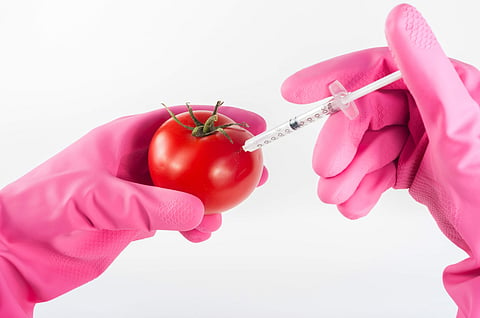

KOCHI: Genetical modification of crops has always triggered controversies with farmers and activists accusing the move as an attempt to monopolise the farming sector. But, a section of the scientists claims that GM crops are a boon to humanity and the propaganda against it is bogus. According to Boney Kuriakose, a senior scientist at Agrigenome, a research firm providing genomic sequencing and bioinformatics services to plant, animal and microbial businesses, as well as academic and government institutions, Indian farming sector, will have to accept genomics as it has the potential to empower the farmers.
Agrigenome has established research facility at Genome Valley in Hyderabad and SmartCity in Kochi with state-of-the-art research equipment.“Gene editing is different from genetic modification. Genetic modification is the introduction of an external DNA, while in gene editing we delete or make changes in the DNA of an organism or cell. If a plant has a fungal infection we can save it by changing the gene. Only a handful of companies in India offer the service. We are offering gene edited seeds of rice, tomato, chilli and sugarcane to countries where the technology is accepted.
We also offer DNA sequencing services to our clients. We have been genome sequencing all verities of paddy grown in India for the Rice Knowledge Bank of the International Rice Research Institute,” said Boney Kuriakose.Agrigenome has employed 150 scientists at its facilities in Kochi and Hyderabad. It has developed a biopesticide to control the looper caterpillar invasion in the tea estates of Assam. The biopesticide is in the commercialisation stage, he said.
Refuting allegations that genetically modified crops will destroy traditional crops, Boney Kuriakose said that India has grown from a cotton importer to the third largest cotton producer in the world within 15 years of allowing BT cotton. “When a high yield variety is introduced, the farmers will opt for it and there will not be takers for traditional verities,” he said.
DNA sequencing and genotyping have helped expedite the plant-breeding process. Indian seed industry has been very traditional. The existing technology takes 10 to 15 years to develop a new verity, while the new technology has brought down the time span by half of the original, said Boney .